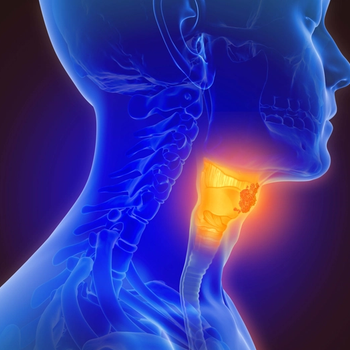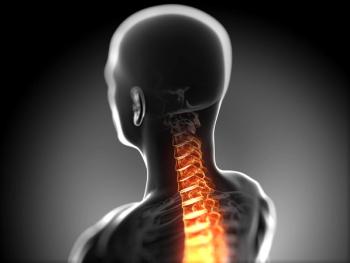
Test Could Detect HPV-Related Head and Neck Cancer Recurrence
Researchers have developed a preliminary test using blood and saliva samples to detect disease recurrence in patients with HPV-related head and neck cancer.
Researchers at Johns Hopkins University have developed a preliminary test using plasma and saliva samples to detect recurrence in patients with human papillomavirus (HPV)-related head and neck squamous cell carcinoma. The study was
The polymerase chain reaction (PCR)-based test detects HPV DNA that is shed from cancer cells in the mouth or other parts of the body. After a median follow-up of 49 months, the study showed that the combined saliva and plasma assays more accurately predicted the risk of recurrence than each assay alone. HPV DNA that was detected in both samples after treatment accurately predicted recurrence 70% of the time. Presence of HPV DNA in saliva predicted recurrence about 20% of the time and detection in the plasma predicted recurrence about 55% of the time.
“Typically we find that tumor DNA is less readily found in the blood/plasma in patients,” said study author Joseph Califano, MD, professor of otolaryngology at Johns Hopkins Sidney Kimmel Comprehensive Cancer Center in Baltimore. “However, when we do find tumor-specific DNA in blood, it tends to be highly specific.” This could be because tumor DNA is only released into the blood when the cancer is invasive, said Califano.
The sensitivity of the combined assays for the detection of pretreatment samples of HPV DNA was 76% compared with 52.8% and 67.3% for the saliva- and plasma-based tests alone. The specificity of the combined assays was 100%. The negative and positive predictive values of using both assays for pretreatment samples were 42% and 100%, respectively.
“It is very encouraging that pretreatment presence of HPV DNA in saliva and blood is associated with recurrence,” said Califano. “This means we [may be able to] define a high-risk group of patients who have a high rate of recurrence that may benefit from more intensive surveillance and/or intensification of therapy.”
In the study, both pre- and post-treatment plasma and saliva samples from 93 patients were analyzed for the presence of HPV-16 DNA. Eighty-one patients had HPV-16–positive tumors and 12 had HPV-16–negative tumors. Patients were treated with surgery, radiotherapy, or chemotherapy combined with radiation at either the Johns Hopkins Hospital or Greater Baltimore Medical Center. The patients had either early- or advanced-stage disease, but no patients in the study had distant metastases.
Detection of HPV DNA in post-treatment saliva and plasma samples resulted in 90.7% specificity and 69.5% sensitivity in predicting recurrence within 3 years of treatment. Detection of HPV DNA in post-treatment saliva samples was associated with a higher risk of recurrence (hazard ratio [HR] = 10.7; P = .002). Those with detectable HPV DNA in their saliva after therapy had lower overall survival (HR = 25.9; P = .002); the same was not true for those with HPV DNA in their plasma.
The test is not aimed to define and confirm recurrence or persistence of a tumor with perfect accuracy, Califano told Cancer Network. The goal for the assays is to understand if further diagnostic tests, physical exams, endoscopies, and imaging, which could localize the site of recurrence and determine appropriate therapy, are needed.
Still, Califano said that he and colleagues are working to improve both the sensitivity and specificity of their assays by combining them with other tumor-specific assays based on unique DNA alterations found in HPV-positive oropharynx cancers.
According to Califano, studies have shown that patients with HPV-positive oropharynx cancers have improved survival, even after recurrence. “This means that there is clearly a significant benefit to identifying patients at risk for recurrence early so they have a better chance for salvage and cure. Currently we do not have great strategies for identifying these patients, but we do have reasonable technologies to identify recurrences at a treatable stage. Ideally one would integrate this type of testing into a surveillance plan for patients, in which those [who] test positive by a saliva or plasma test would receive more intensive surveillance, potentially including more frequent physical exam, endoscopy, or imaging to detect recurrence at an earlier, more treatable stage.”
Newsletter
Stay up to date on recent advances in the multidisciplinary approach to cancer.
Related Content


Subcutaneous Amivantamab Earns Breakthrough Therapy Designation in HNSCC













































